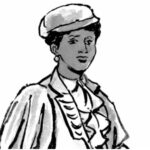Jesmyn Ward: Breaking Barriers with Her Powerful Storytelling
Jesmyn Ward has etched her name into literary history as a trailblazer. The acclaimed author achieved an incredible milestone by becoming the first woman and the first Black American novelist to win two National Book Awards for Fiction.
Born in 1977 in Oakland, California, Ward’s authentic narratives explore the lives of poor African Americans living in coastal Mississippi. Her lyrical prose carries profound empathy, giving voice to often-overlooked communities.
“Ward’s stories are largely set on the Gulf Coast of Mississippi, where she grew up and still lives, and her writing is deeply informed by the trauma of Hurricane Katrina,” notes her publisher.
Seminal Works Recognized with Top Honors
Ward’s breakthrough came in 2011 when her novel “Salvage the Bones” earned the National Book Award. She repeated this extraordinary feat in 2017 with “Sing, Unburied, Sing,” solidifying her place among literary greats.
“The first woman and the first person of color to win two National Book Awards for Fiction — joining the ranks of Faulkner, Bellow, Cheever, Roth, and Updike,” the literary world celebrated.
A Profound Impact Beyond Fiction
Alongside her acclaimed novels, Ward’s memoir “Men We Reaped” provided a deeply personal account of loss and hardship. The raw exploration of the five young men she lost resonated widely, earning a National Book Critics Circle Award nomination.
As Vanity Fair noted, “Ward addressed her feelings of grief following her husband’s death, the coronavirus pandemic, and racial injustices happening across the United States” in a moving 2020 essay.
Championing Diverse Voices in Literature
Ward’s influence extends beyond her own writing. As the editor of “The Fire This Time,” she curated a groundbreaking anthology elevating vital perspectives on race from leading contemporary writers.
With her powerful storytelling and commitment to amplifying marginalized voices, Jesmyn Ward continues to inspire readers and push the boundaries of American literature. Her historic achievements are a testament to the transformative power of the written word.



